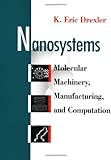The north star is that there are some people on Mars who know that the stream of supplies from Earth will stop and that their children having a future is contingent on being able to manufacture everything from metal to plastics to microchips and pharmaceuticals with as small a population and industrial base as possible.
Closer to home and more urgent are problems such as decarbonization, relocalization, etc. If a doctor on Mars needs a synthesizer which can make mRNA, peptide and protein-based drugs for any condition, so does a doctor in Rwanda. Drexler's program in
https://www.amazon.com/Nanosystems-P-K-Eric-Drexler/dp/04715...
has definitely not progressed. Maybe we can't make a 1kg machine that can make itself and everything else, but could we shrink the manufacturing base such that a population of 1M people could be self-sufficient at a high technology level? Can we make all the things that we depend on and be carbon neutral? Can we continue the miniaturization of electronics?
Getting just part of the way to those goal could pay rich dividends.
http://www.amazon.com/Nanosystems-Molecular-Machinery-Manufa...
Richard Feynman apparently had recursive ideas, use a lathe to make a tiny lathe, use the tiny lathe to make a really really tiny lathe... all the way down.
This is the future... but probably a long way away.
A more technically oriented book is "Nanosystems": http://www.amazon.com/Nanosystems-Molecular-Machinery-Manufa...


Since it's not plausible that you could bring anything back from Mars that would be worth enough to make colonization practical from the perspective of Earth, Mars colonists would always have to assume that the last rocket that was launched is the last that will arrive. From their point of view, they'd want to be able to manufacture absolutely everything locally as soon as possible.
It's one thing to say "we can make unlimited oxygen from the soil never mind the atmosphere", it's another to find a source of nitrogen or other inert gas that makes it possible to live in an atmosphere that doesn't make everything into a firetrap. It's one thing to spin the kind of science fiction that Gerard K. O'Neill did, but his disciple Eric Drexler realized just how bad the problem of 'advanced manufacturing' is and went off to follow his own El Dorado, writing a fascinating book [1] about a class of systems that 'just don't work' [2]
Not to say that the goal of "a population of 10,000 people being able to make everything that 8,000,000,000 can make" is unattainable, even if we can get it down to an advanced industrial base being supported by 10,000,000 people it would be a game-changer here on Earth. I can see paths there, but it's by no means a bird in the hand.
[1] https://www.amazon.com/Nanosystems-P-K-Eric-Drexler/dp/04715...
[2] https://latecomermag.com/article/what-happened-to-molecular-...